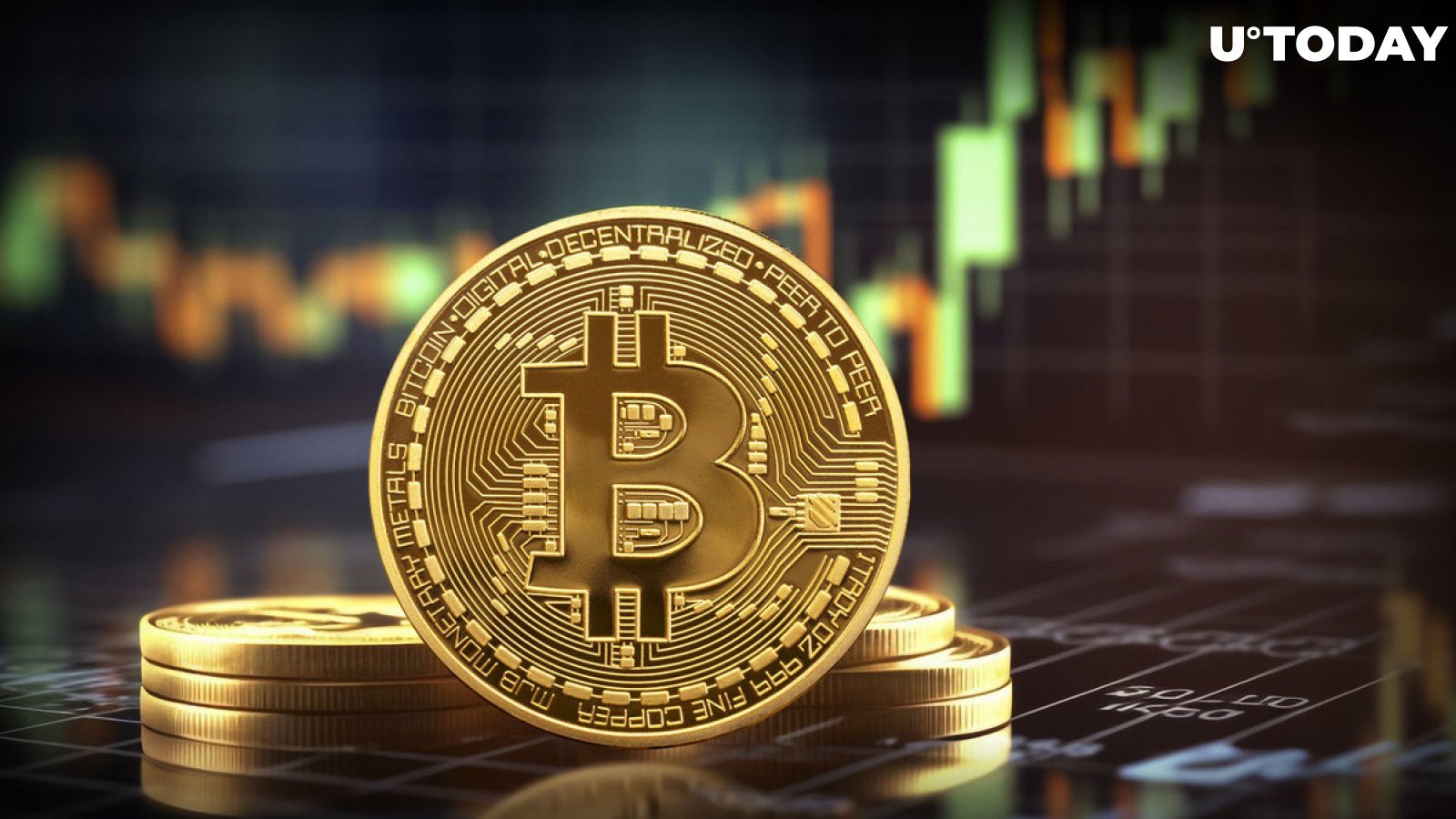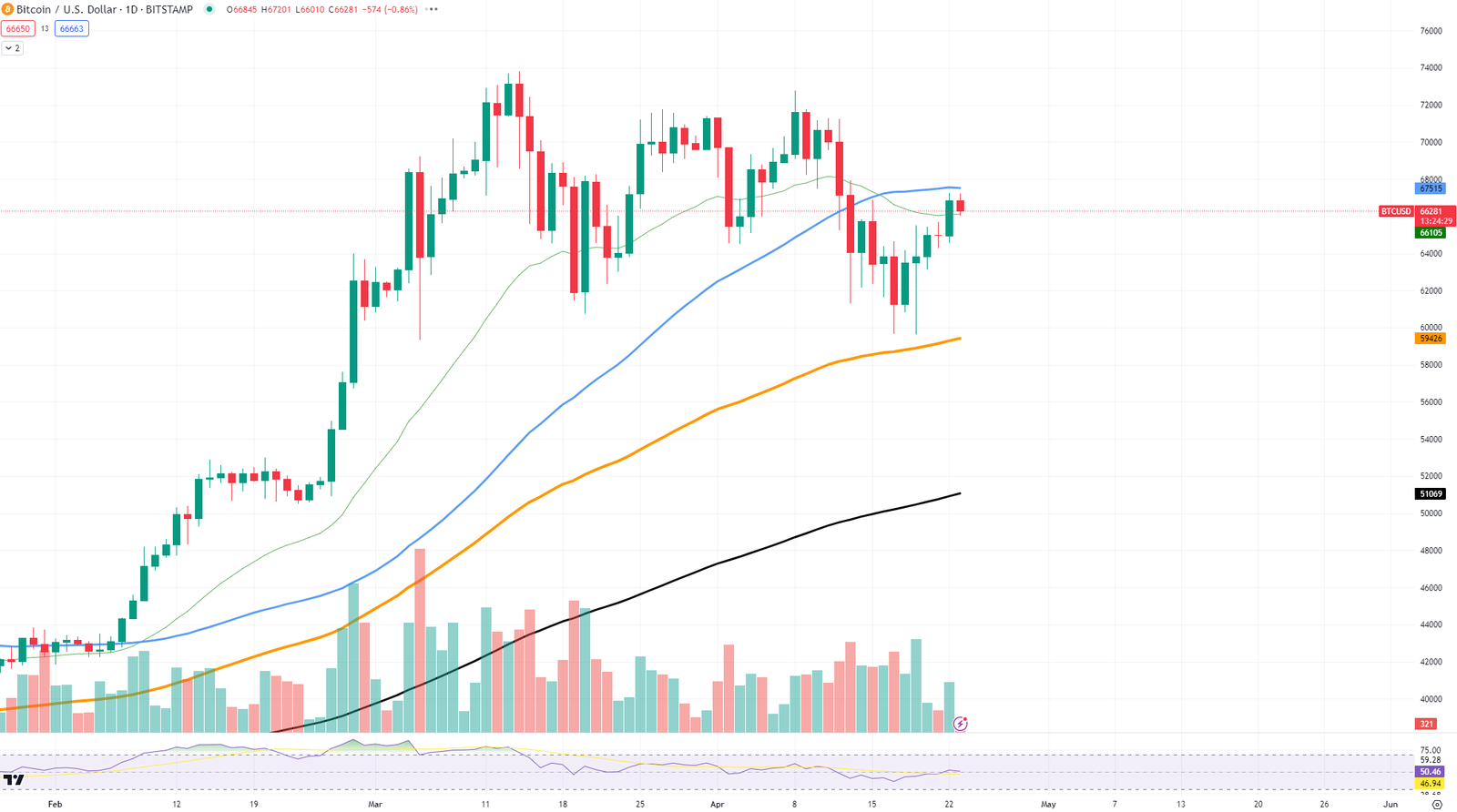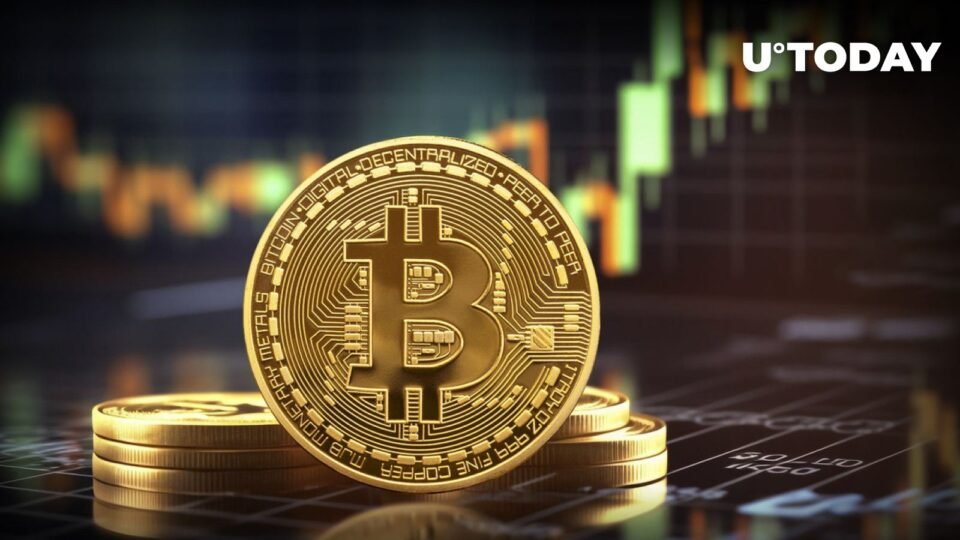
Disclaimer: The opinions expressed by our writers are their own and do not represent the views of U.Today. The financial and market information provided on U.Today is intended for informational purposes only. U.Today is not liable for any financial losses incurred while trading cryptocurrencies. Conduct your own research by contacting financial experts before making any investment decisions. We believe that all content is accurate as of the date of publication, but certain offers mentioned may no longer be available.
Bitcoin’s fourth halving has come and gone, and its effect can already be seen with an over 3% price bump since the event — a sign of upcoming growth compared to past halvings.
Historically, halvings have shown a mix of short-term reactions but tend to lean toward a bullish trend over the long run. Yet, it is crucial to note that there are not many past events from which to form a solid case.

Beyond market fluctuations, the weekend following the halving saw a significant spike, not in price, but in transaction fees. Bitcoin’s network fees skyrocketed to a record $146 on average, overshadowing Ethereum’s modest $3 fee. This spike caught the community off-guard, although the signals were on the horizon.
Reason behind fees
Behind the scenes, a big part of this fee surge can be attributed to the recent activities around Bitcoin’s block space. The Runes protocol’s debut — a system built to simplify issuing tokens on Bitcoin — followed in the footsteps of the Ordinals protocol, increasing a demand for space on the blockchain.
Both protocols involve inscribing data onto Bitcoin blocks, similar to creating NFTs, thereby ramping up the demand for block space and, as a consequence, driving up transaction fees.
What’s more, this increase in fees likely saw a boost from Runes’ launch, as it pushed for even greater demand, causing notable fluctuations in fee levels over the weekend. The frenzy for block space translates directly into higher costs for executing transactions on the network.
Despite these fee changes, Bitcoin’s perpetual swap funding rates stayed relatively neutral, which suggests that market sentiment has not leaned heavily in favor or against the price direction. Even though open interest has dialed back from its peak in March, it is still riding high above $10 billion.

